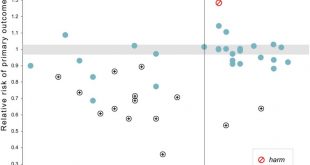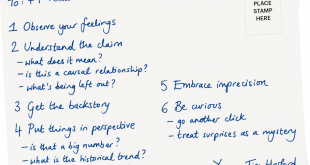Guest post by Jeff Mosenkis of Innovations for Poverty Action. If you can get past me at the beginning, this Planet Money episode The Poop Cartels (Apple/iTunes link), I think shows the power of good econ theory put into practice. Molly Lipscomb of the University of Virginia explains how she, with Laura Schechter, and a big research team in Senegal tried to introduce what some people have also called the “Uber for Poop.” Peter Biar Ajak is a former Sudanese “lost boy” who went on to train...
Read More »IPA’s weekly links
Guest post by Jeff Mosenkis of Innovations for Poverty Action. Petronia (above), an online course and game from the National Resource Governance Institute, lets users run a fictional country where oil is discovered to see if they can avoid the resource curse. (h/t David Batcheck) From the Stata journal– A new command, baselinetable, creates handy summary stats tables for your baseline reports to make sharing your findings much easier. It exports to Stata, Excel, CSV, etc to make it really...
Read More »IPA’s weekly links
Guest post by Jeff Mosenkis of Innovations for Poverty Action. “Back in school we used to call it chew and pour,” he says. Meaning, for each possible question, the teacher gives you one correct answer to memorize — or “chew” — so that come test time, you can regurgitate it — “pour it” back to her verbatim. “And then,” adds Agbavor with a chuckle, “you forget about it. Nothing is retained.” That’s from one of my favorite podcasts, NPR’s Rough Translation, which is hosted by their former...
Read More »IPA’s weekly links
Guest post by Jeff Mosenkis of Innovations for Poverty Action. First, congratulations to some fantastic economists: Amy Finkelstein on her election to the National Academy of Sciences Pam Jakiela on her appointment as a senior fellow at the Center for Global Development Seema Jayachandran on becoming an editor of AEJ: Applied Economics Jessica Goldberg on becoming Associate Prof at the University of Maryland What a great week for the field (and sorry to the many I’ve probably missed). Mary...
Read More »IPA’s weekly links
Guest post by Jeff Mosenkis of Innovations for Poverty Action. Preregistration stops medications from working Tyler Cowen interviewed Chris Blattman and in typical Cowen fashion came prepared – I had to slow down my usual podcast playback speed to keep up. Topics Included what Chris learned from his first job at a higher class Canadian KFC, interviewing child soldiers, causes of the Peloponnesian Wars, why he’d rather transfer accountants to poor countries than cash, and how he tries to...
Read More »Andrew Gelman — Gaydar and the fallacy of objective measurement
Stripping a phemenon of its social context, normalizing a base rate to 50%, and seeking an on-off decision: all of these can give the feel of scientific objectivity—but the very steps taken to ensure objectivity can remove social context and relevance. Statistical Modeling, Causal Inference, and Social ScienceGaydar and the fallacy of objective measurementAndrew Gelman | Professor of Statistics and Political Science and Director of the Applied Statistics Center, Columbia University
Read More »Andrew Gelman — Classical hypothesis testing is really really hard
Take the test. ? (Just kidding unless you are a statistician.)Statistical Modeling, Causal Inference, and Social ScienceClassical hypothesis testing is really really hardAndrew Gelman | Professor of Statistics and Political Science and Director of the Applied Statistics Center, Columbia University
Read More »IPA’s weekly links
Guest Post by Jeff Mosenkis of Innovations for Poverty Action. Above, Tim Harfords postcard rules for reading statistics (gated), inspired by Harold Pollack’s personal finance rules index card. ER docs seem to use mental heuristics – patients are more likely to get tested for and diagnosed with a heart attack if they go right after their 40th birthday than right before (job market paper from Stephen Coussens). Dick Thaler’s Nobel Prize-winning Mental Accounting paper was originally rejected...
Read More »IPA’s weekly links
One of the things Chris is up to these days is being the academic lead for the new Peace and Recovery Initiative at IPA, which is looking to fund research about fragile states, repression, reducing crime and violence, and recovery from humanitarian disasters. Deadline for proposals is March 2 (that’s one short month), and please share with colleagues. But even for general interest reading, I recommend this “guiding principles” document, which is also a very readable summary of what Chris...
Read More »IPA’s weekly links
Guest post by Jeff Mosenkis of Innovations for Poverty Action. Balding and bespectacled, with an unmistakable New York accent, Thomas has spent more than 30 years in the foreign service, serving in U.S. missions from Nigeria to India to the Philippines — but nowhere was he treated quite like this. “My staff and I are called names that the Ku Klux Klan doesn’t even use anymore,” he said. (* disclaimer: I don’t know anything about him or the Cape Town water & behavior project, but it...
Read More » Heterodox
Heterodox






